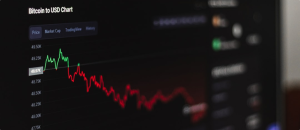Good to know
This is a brokerage business model whereby client orders are routed directly to one or more liquidity providers for execution. Liquidity providers can be companies, banks or financial institutions that set the buy and sell prices for financial instruments or commodities.
The more liquidity providers a broker has, the better the execution for its clients (more access to liquidity usually means less price slippage). What sets a true STP (straight through processing) broker apart is that the STP broker does not process orders internally, but routes them to liquidity providers, acting as an intermediary between its client and the real markets.

No, we do not have such a practice. A broker who re-quotes your orders is usually a dealing desk broker. Requoting occurs when the dealer on the opposite side of the trade (they can be either live dealers or automated systems) delays the execution of the order, during which the price may change. As a result, the broker cannot execute your order and informs you of the price change, which is called a requote. Usually, the new price offered to you in such a case may differ from the one you requested (especially in volatile market conditions). In most cases, requotes do not benefit the client. We do not have a practice of requoting because we do not have a dealing desk, neither a human nor an automated (software) dealer.
Of course, you can. What sets us apart from some other brokers is that we welcome scalpers. Dealing desk brokers have a different business model: they themselves become the counterparty to their clients’ trades and must make decisions about hedging or managing the client’s overall net position at any given time. Therefore, trading styles such as momentum scalping can be challenging for these brokers, especially since scalpers tend to open and close trades quite quickly.
Another potential problem for dealing desk brokers is that scalpers create a large number of trade requests at once, especially during periods of increased market activity, such as important economic data releases. Such orders, if they exceed a certain size, are often processed individually and may result in requotes for clients.
We are not a dealing desk broker. Instead, we send all trades to our liquidity providers. It is beneficial for us to have a higher trading volume as we receive a commission based on the trading volume, which means scalpers can also find their place among our clients.

Signs that your broker might be a dealing desk (market maker) include:
- Restrictions on certain trading strategies, such as scalping or news trading.
- The use of fixed spreads.
- Offering so-called “guaranteed” stop-loss orders.
- The possibility of requotes (new price offers after an order is submitted).
If you encounter one or more of these signs, your broker is likely a dealing desk. Dealing desk brokers, also known as market makers, create their own internal markets based on the underlying market and may act as the counterparty to your trades.
They generate profit based on the difference between the overall losses of clients and the profits of clients that cannot be hedged. In general, dealing desk brokers face a two-way flow of clients who are buying and selling in a given market. Dealing desk brokers must manage the net position of this flow—whether long or short—at any given time. Depending on the broker, part of this position may be hedged in the real market, while the remaining risk—up to the level the broker is willing to accept—can be treated as the broker’s own trade.
We receive liquidity from multiple liquidity providers around the world. Our system is designed to offer our clients the best available prices based on the aggregated quotes from our liquidity providers. When you place a new order, you receive the best available bid or ask price offered by our liquidity providers, and our commission is already included in the spread you see on the trading platform. This means we are incentivized to keep you trading and to retain you as our client, and therefore, it is in our best interest for your trading to be as profitable as possible.
Simply put, we do not requote because we have no control over the pricing (i.e., the prices displayed on your trading platform). Your order will be executed when there is a matching price from one of our liquidity providers. However, it’s important to note that we cannot guarantee your order will be filled at the exact price you requested; our system is designed to fill it at the next best available price from another liquidity provider. Still, it’s important to emphasize that we do not practice requoting, as our interest lies in your successful trading.

No, they cannot. From their perspective, they see only one client — our company as the broker. You remain completely anonymous to them at all times.
This can happen and is usually due to a lack of liquidity at that moment. For example, imagine several clients placed limit sell orders above the current market level with a total volume of 1,000 lots just before a major news release. When the news is published, the market suddenly spikes by more than 50 points, reaching the price level of those orders. Liquidity providers then receive requests to fill the total 1,000 lots. However, at that moment, only 200 lots of liquidity may be available. In this case, the first 200 lots will be filled, while the remaining 800 lots will remain unfilled due to insufficient available liquidity. These unfilled orders will wait until the price reaches or exceeds that level again.
Absolutely. All Expert Advisors (EAs) are welcome.
Slippage is a small change in price between the moment an order is placed and the moment it is executed. This can occur due to limited liquidity in the market (when there are already orders from other traders) or during periods of market gaps. Slippage is the difference between the price at which you requested the execution of the order and the price at which it was actually executed. This difference may occur due to a lack of liquidity, execution speed, or price variations in the market. We do not guarantee that an order will be executed exactly at the requested price. Our system is designed to execute orders at the next best available price from liquidity providers, even if this results in slippage.

In the real market, the concept of a “guaranteed stop order” does not exist. This type of stop order is offered by dealing desk brokers who create their own markets based on underlying markets. Such brokers have greater flexibility in setting stop orders because they can manage a portion of clients’ net positions as internal trades against clients.